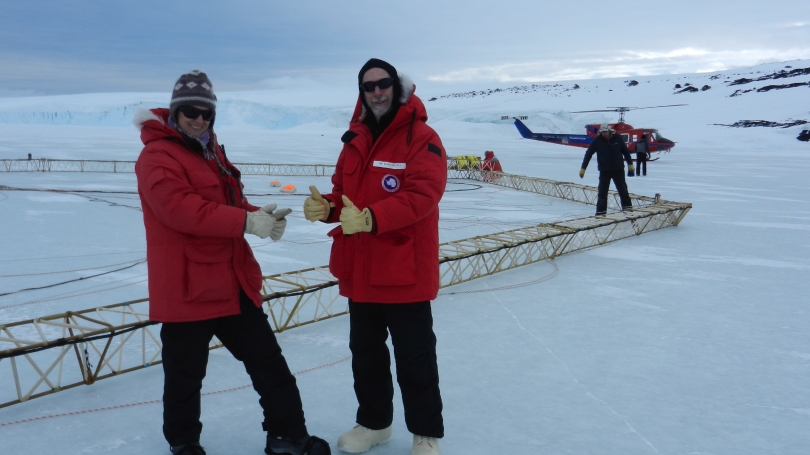
- About
- Programs
- Student Opportunities
- For Faculty
- News & Events
Back to Top Nav
Back to Top Nav
Back to Top Nav
Back to Top Nav
Back to Top Nav
April 30, 2015 | Dartmouth Now
Using a novel, helicopter-borne sensor to penetrate the surface of large swathes of terrain, a team of researchers, including Ross Virginia, Director of Dartmouth's Institute of Arctic Studies at the Dickey Center and Myers Family Professor of Environmental Science, supported by the National Science Foundation (NSF) has gathered compelling evidence that beneath Antarctica's ice-free McMurdo Dry Valleys lies a salty aquifer that may support previously unknown microbial ecosystems and retain evidence of ancient climate change, stated a press release from NSF.
The Division of Polar Programs in NSF's Geoscience's Directorate supported the AEM sensor project through a collaborative award to Mikucki, Tulaczyk and Virginia.
Numerous national and international media outlets have featured the research, including the Washington Post, ABC Science, Christian Science Monitor, Huffington Post, Discovery, Daily Mail, the Verge, New Scientist, Business Insider Australia, Business Standard, Yahoo! News, International Business Times, Irish Examiner, Science Mag, IFL Science, Phys.org,Silicon Republic, Red Orbit, the Weather Network Canada, and Knoxville News Sentinel.